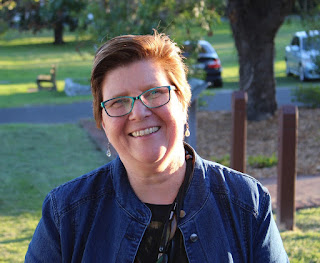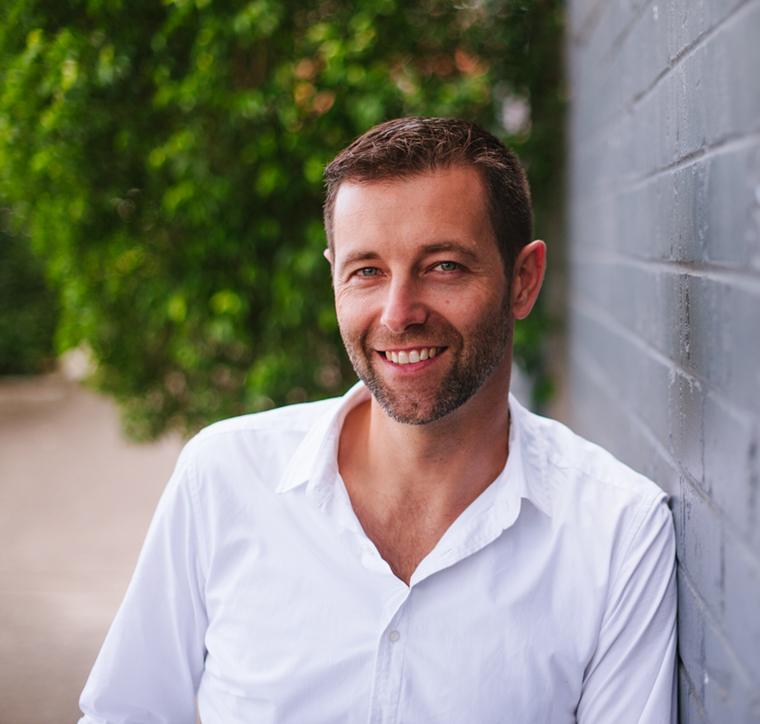A Problem with Christianity
Christianity in Australia has been trending down for several decades with fewer and fewer people identifying as Christian, let alone actively participating in a church community. Perhaps most concerning are the statistics on the millennials’ exodus from the church.
This begs the question - If Jesus was such a compelling figure, his vision for humanity so beautiful and his death and resurrection so cosmically significant, then what’s the problem?
Volumes have been written on the cultural, sociological and ideological reasons for this, but let me offer a simpler explanation – churches tend to gather fans of Jesus, not grow followers. They focus on attracting people to activities about Jesus (ie church) and inoffensive beliefs about Jesus - but not disciple them into a life being renewed with Jesus.
Covid, has introduced every Christian to a world of faith without the weekly habit of much that constituted or defined ‘church’ for the past millennia. As a result, it has revealed the quality of our conviction and connection to Jesus without 'church', and our willingness to take greater responsibility for our own spiritual health. In times like this, do people rely more heavily on the daily practice of being with Jesus, or slide into a kind of spiritual hibernation mode until it’s all over? I’d love to think it’s the former but my observations tend to land more on the latter.
And if this is indeed the case then it says as much about the church as an organisation as it does about the individual believer. What it says to church leaders everywhere is that whatever it is we are doing, we may not be doing one of the most important things Jesus commanded us to do – make disciples.
Apprenticeship is the modern equivalent of what Jesus meant when he said “make disciples”. A disciple is a person who, like an apprentice, is learning to be like their master and do what their master does. So, if for example you are a plumber’s apprentice, you are learning to take on the profession and practice of plumbing. If, at the end of that apprenticeship, you don’t know how to join two pipes together then something has gone wrong in your apprenticeship. I suspect that something is systemically broken in the apprenticeship of people who would profess Christianity. And perhaps the problem begins with not having a clear picture of what a Christian is.
So what is a Christian?
For some it’s going to a church, or being christened. For some it’s that they have Christian values, or they went to Sunday school as a child, or they give to charity or they just believe in “god” or that they are not one of the other religious brands. Is this being Christian? Truth is, to be a Christian is none of the above. Being a Christian is being a disciple.
So, what is a disciple?
As a starting point, discipleship, like apprenticeship is about being with and becoming like your master and friend – Jesus. That in itself is enough to take in, especially in our cultural moment which is fuelled by rampant individualism and the belief that we are the masters of our own destiny.
Discipleship uniquely works itself out in every individual believer over the span of their lives. And while that last sentence is basically true, this is exactly the kind of ambiguity that is so problematic in Christianity today.
Discipleship does look like something much more concrete than some kind of ‘choose your own adventure’ lifestyle. When I reflect on how Jesus disciples people and the historical accounts of the early church, I notice 5 discipleship principles that describe what Christianity ought to look like in those who would call themselves Christian.
Discipleship looks like an:
1.Intentional Life. Jesus said to Peter, “come follow me and I will make you…(Mark 1.16-18).” Discipleship is a life on purpose. It’s a deliberate, active, daily choice to drop your agenda, surrender your independence and to allow Jesus to shape life’s purpose and direction. The intentional life owns the responsibility for following and growing up into the character and likeness of Jesus. An intentional life owns the rhythms and practices that nurture union with Jesus such as prayer and meditation on scripture. Moreover, this life is intentional about all relationships around us – and the way our thoughts, words and actions impact others either toward or away from union with God. Following is always the choice of the disciple because God is non-coercive, seeking a free response of love and delight.
See: Matthew 6.6, Mark 1.35, Luke 5.16, Mark 11.22-25, John 15.5-8, Acts 2.42, Philippians 3.12
Without Intentionality… there is no momentum in the relationship with Jesus. It becomes silent, shallow to non-existent. It lacks purpose and resilience. And, the wider community will witness nominalism.
2.Holistic Life. Jesus’ vision of discipleship sees everything as spiritual – our bodies, minds, relationships, neighbourhoods. Our work, our economy, our politics and our environment. There is no sacred secular divide nor is relationship with Jesus merely an aspect of life. Jesus’ vision of life influences and informs every part of a disciple’s internal and external life, for all of life. I like to visualise this dimension with a bicycle wheel where Jesus represents the hub of the wheel, not merely a spoke. As all of the spokes connect to the hub so all of life connects to Jesus.
See: Matthew 5.16, 6.33-34, 22.37-39, Romans 12.1-2, Ephesians 5:15-17
Without holistic… people create secular and sacred responses to life which makes them inauthentic, double minded and lacking a compelling reason why the Gospel makes a difference everywhere. And, the wider community will witness irrelevance.
3.Selfless Life. Jesus’ vision of discipleship is not “about me”, rather it’s a life of serving others and dying to self. The God of all creation embodies this as He dons a towel and washes his disciple’s feet (John 13.4-5). The New Testament teaches that looking to the needs of others and laying down one’s life for the sake of others is the prime expression of love (1 John 3.16).
See: Luke 9.25, Luke 14.26-33, Mark 10.43-45, 1 Corinthians 13, Ephesians 4.32
Without selflessness… a disciple cannot walk the way of Jesus nor reflect the self-giving character of God in our world. And the wider community will witness hypocrisy, injustice and corruption.
4.Communal Life. Christ’s vision of life is personal but not individual, we are disciples together in a shared life. The New Testament knows no discipleship that exists in isolation to intentional spiritual community. We grow in the soil of community for community is both where we find support and encouragement, and where we confront our own self-centeredness and the tension of our differences. A communal life is a life that seeks to include people. As such, a communal life is not limited to those “inside” the church community. As a disciple, we realise that we share a communal life which extends to our neighbourhoods and workplaces.
See: John 17.11, John 13.34-35, Acts 4:32-35, Hebrews 10.24-25, Romans 12.4-5, Romans 15.14
Without communal… disciples become vulnerable, isolated, distracted and don’t mature emotionally nor spiritually. And the wider community will witness discrimination, alienation and an air of superiority.
5.Missional Life. Jesus’ vision is for all things – people, families, communities, creation, to be restored and aligned with Him. This alignment would see justice, mercy and compassion expressed alongside spiritual renewal. The missional life is the natural extension of a life that is intentional, holistic, communal and selfless.
See: Matthew 28:18-20, Mark 6.34, John 3.16-17, Acts 1.8, Colossians 4.5-6, 1 Corinthians 9.16
Without mission, discipleship is sterile and inconsequential to a broken, confused world. But with mission the wider community will witness a foretaste of heaven.
So, Christianity is a life of discipleship. And discipleship looks like a life being renewed with Jesus that is increasingly intentional, holistic, selfless, communal and missional. This kind of clarity I think is urgently needed in an age where there is such ambiguity and confusion around what is truth and what it means to believe anything. When Christianity is reduced to a church service and a vague set of ideas about Jesus, disciples lack resilience, they have little chance of experiencing what Jesus intended for them nor capacity to authentically bring a compelling vision of life to the their world.
And that’s a problem with Christianity.



















